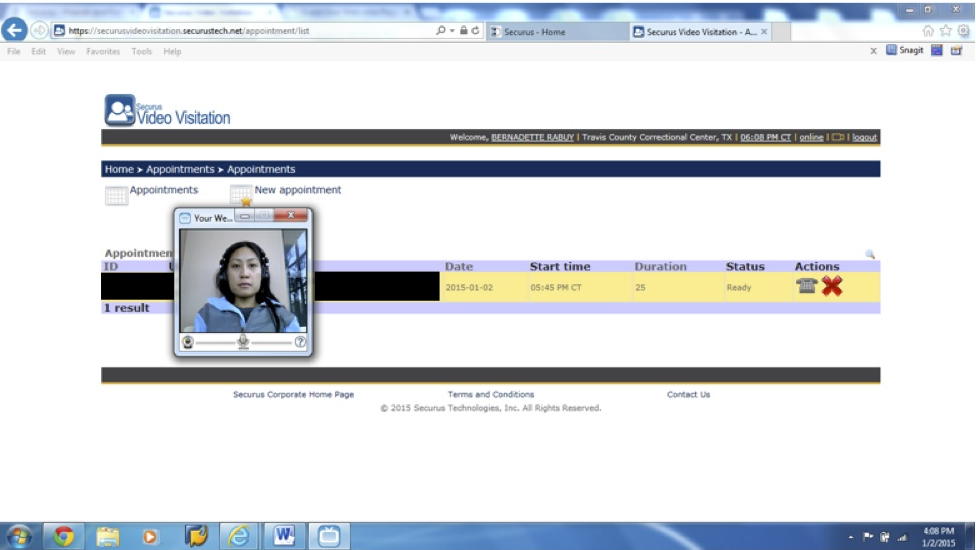New Prison Policy Initiative report finds video visitation actually punishes families
January 14, 2015
FOR IMMEDIATE RELEASE: January 14, 2015
Contact:
Bernadette Rabuy
(413) 527-0845
Easthampton, MA — New technology that is supposed to make it easier for families to stay in touch with incarcerated loved ones is actually doing harm, charges a new report by the non-profit Prison Policy Initiative.
While prison and jail video visitation is often described as similar to well-known free services such as Skype or FaceTime, these pay-to-visit video systems are often being used to replace essential human contact. The report, Screening Out Family Time: The for-profit video visitation industry in prisons and jails, finds that most county jails are implementing video visitation with an approach that is a step backwards for families and correctional best practices: video visitation actually punishes families.
Rather than offering video visitation as a supplement to traditional visitation, county jails and video visitation companies are replacing free, in-person visits with free but restricted onsite video visits and low-quality, remote video visits that cost up to $1.50 per minute. “Families are unhappy with video visitation because it replaces the real living person on the other side of the glass with a grainy computer image,” explains Bernadette Rabuy of the Prison Policy Initiative.
“While this technology goes back to the 1990s, this report provides what has before now been entirely lacking: a comprehensive national survey of the video visitation industry starting at its promised benefits and analyzing how it works in the real world,” says Peter Wagner, Executive Director of the Prison Policy Initiative.
The Prison Policy Initiative analyzed over a quarter of the industry’s contracts with state prisons and county jails to describe the trends and contrast the industry’s marketing claims with the evidence. The report finds that, with some notable exceptions, this technology is poorly designed, does not work well, and makes a trying time for families even more challenging.
The report offers 23 recommendations for federal and state regulators, legislators, correctional facilities, and the video visitation companies, all with an eye towards making video visitation into a positive, rather than negative, communication option.
For the executive summary, see: http://www.prisonpolicy.org/visitation/exec_summary.html
For the report, see: http://www.prisonpolicy.org/visitation/report.html
-30-





